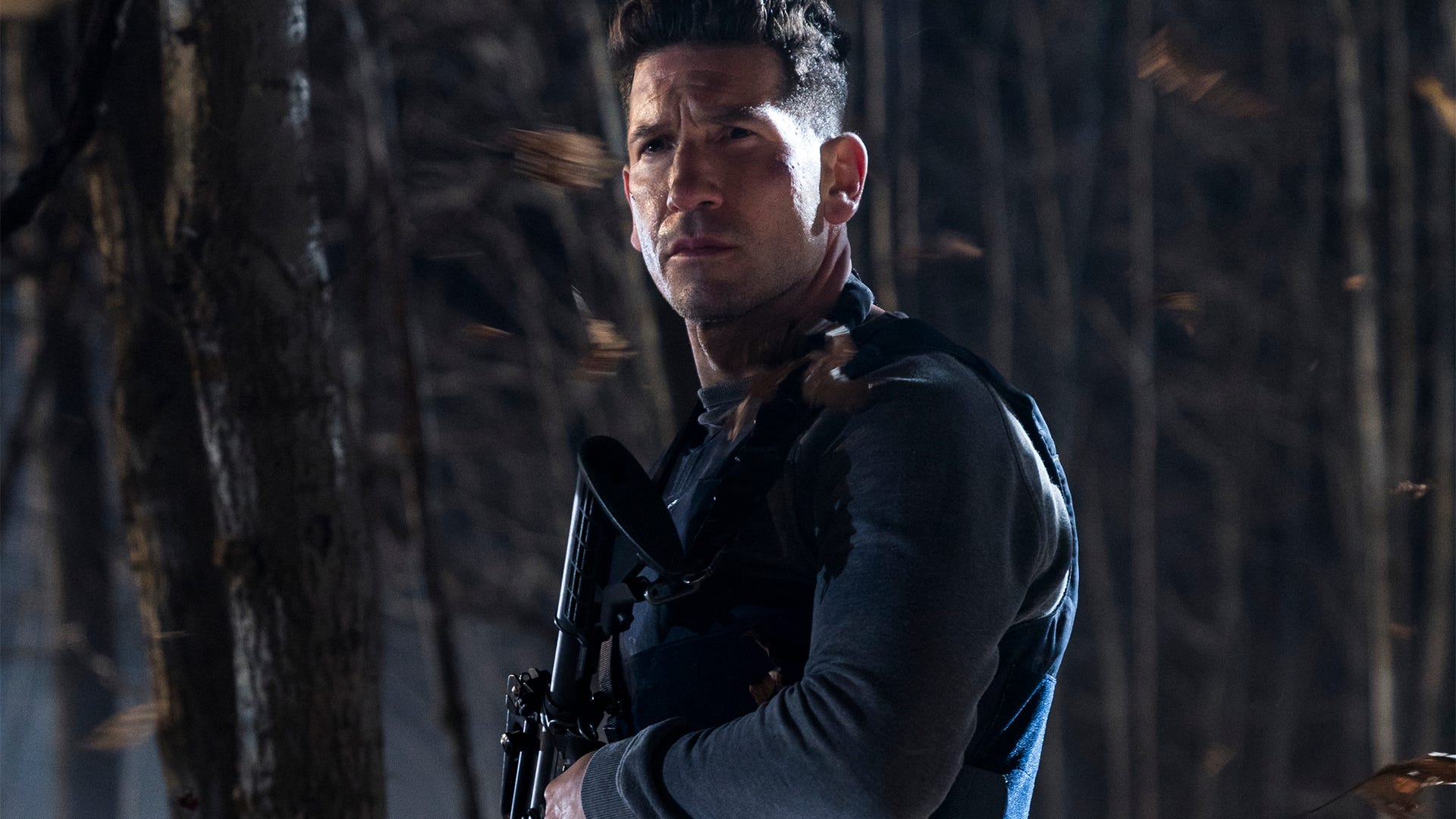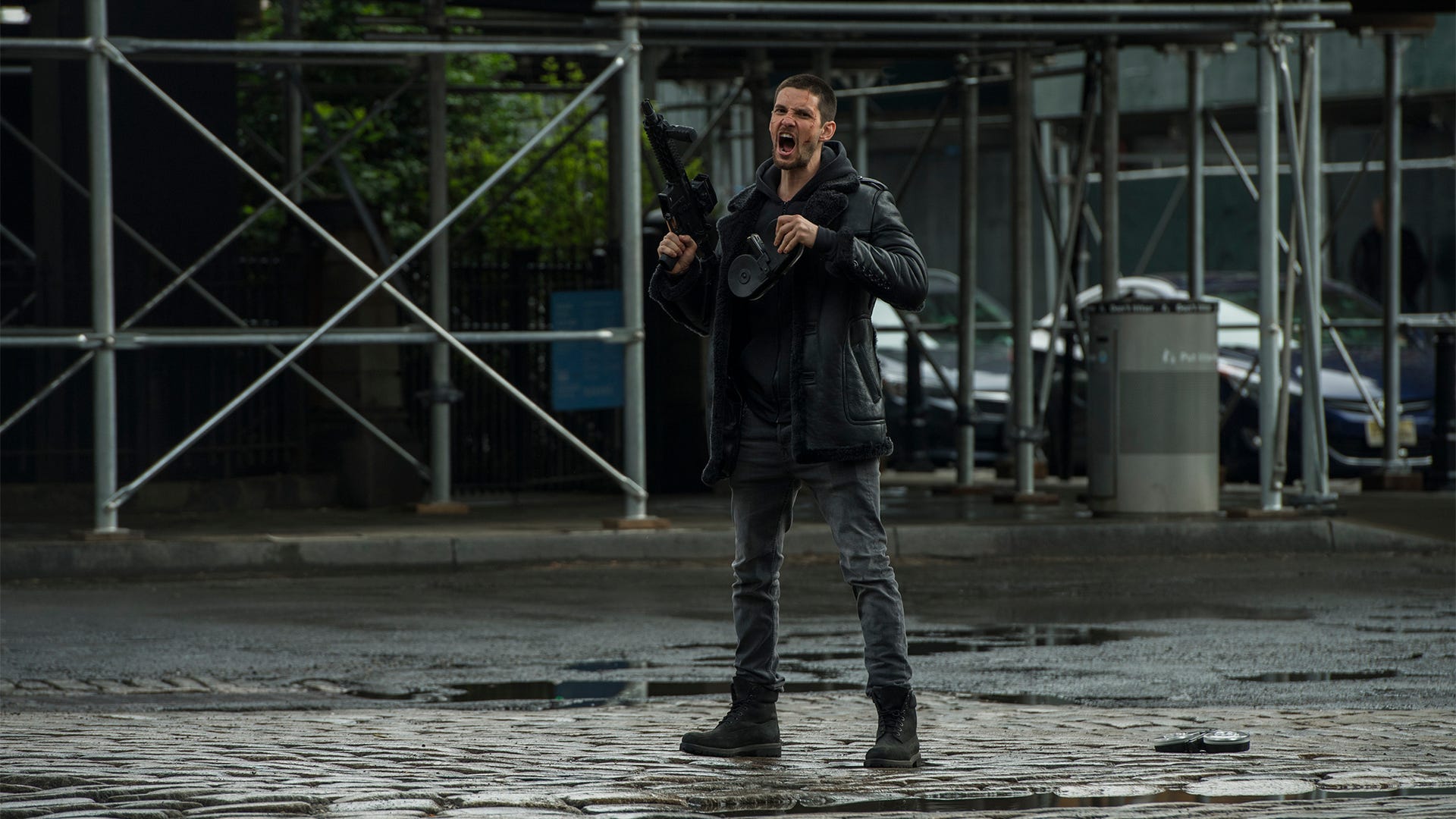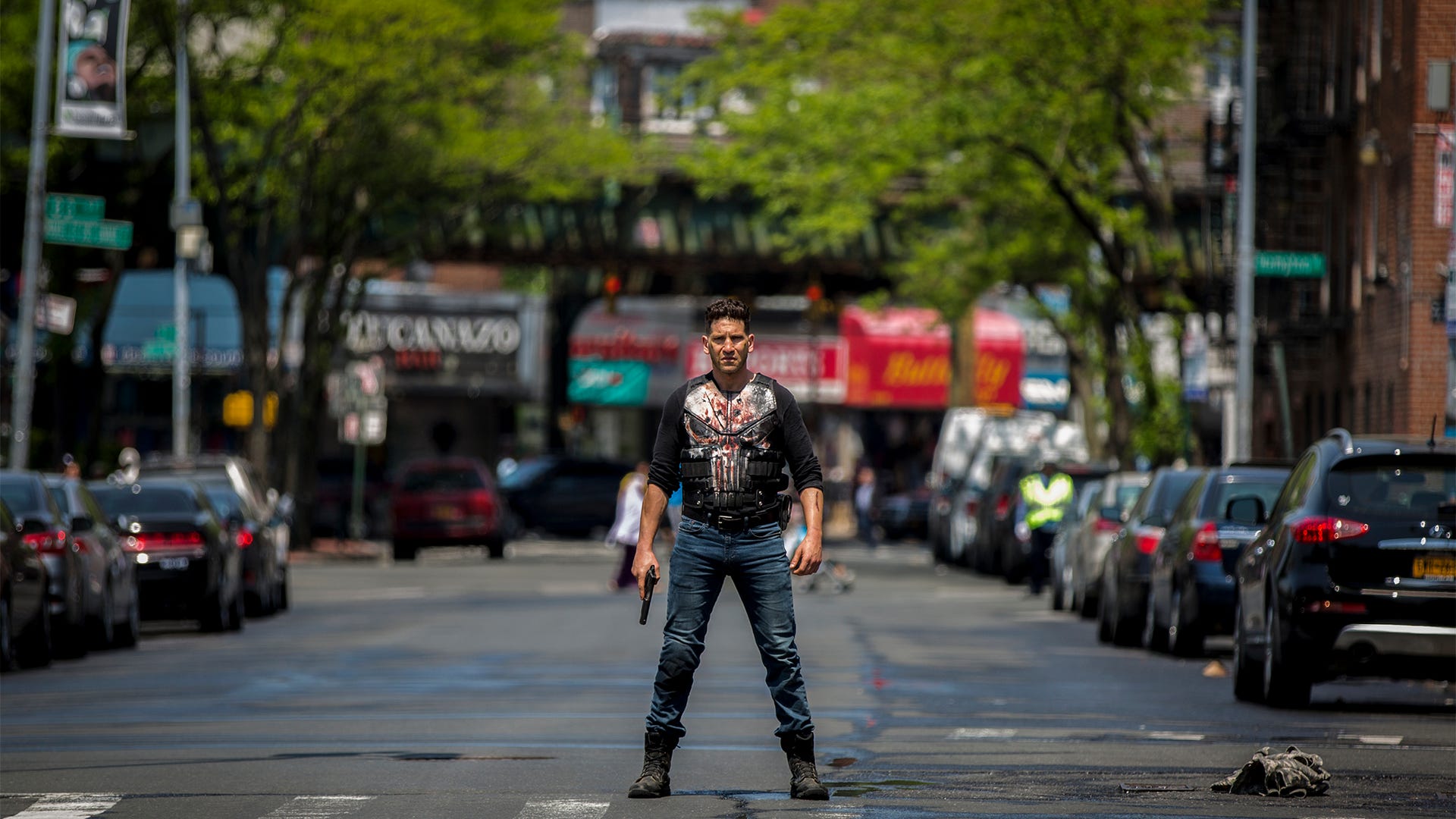Join or Sign In
Sign in to customize your TV listings
By joining TV Guide, you agree to our Terms of Use and acknowledge the data practices in our Privacy Policy.
Marvel's The Punisher Season 2 Is Still All About Frank and Billy, and Nothing Else Matters
This season's new villain hardly even registers
Marvel's The Punisher is going to be canceled. That's the harsh truth. Netflix and Marvel are almost certainly severing all ties after four years and a fruitful partnership that, by the time it is over, will have produced three seasons of both Daredeviland Jessica Jones (the third is expected to debut later this year), two seasons each of Luke Cage,Iron Fistand The Punisher, and a single season of the team-up series The Defenders.
The choice to end the partnership has little to do with the success or popularity of the comic book series and everything to do with the fact the shows are produced by Marvel Television and ABC Studios, both of which are part of Disney, and Disney is launching its own streaming service later this year. Iron Fist, Luke Cage and Daredevil have already received the ax; The Punisher and Jessica Jones will certainly be cut down after Netflix releases their respective seasons that were ordered prior to the decision to dissolve the partnership. To that end, does it matter if The Punisher's second season, which drops Friday, Jan. 18, is any good if it's essentially dead on arrival?
Discover Your New Favorite Show: Watch This Now!
To be frank about it: Not really. Whether or not the new season is good or bad has no effect on the show's future. It is what it is. But none of this will stop people from watching it, and it shouldn't. Despite being too long, the first season of The Punisher was a fascinating character study of Frank Castle (Jon Bernthal) the husband and father rather than just an action series about the highly skilled killing machine known as the Punisher, a nickname bestowed upon Frank by others that he himself has never used. That alone garnered enough goodwill to warrant giving the second season a chance.
Regrettably but predictably, the 13-episode second season, which picks up a year after Frank smushed Billy Russo's (Ben Barnes) pretty face into a mirror and cut it to pieces after learning his former friend and brother in arms was responsible for the deaths of his wife and two children, suffers from the exact same problems that have plagued nearly all of Netflix's original programming: It's too long and doesn't have enough story to adequately fill 13 hours of television. The many pieces of the puzzle also don't start coming together until far too late in the game as a result, and by that point, it's rather hard to care.

Jon Bernthal, Marvel's The Punisher
David Lee/NetflixStill, Frank remains a captivating character in Bernthal's strong and capable hands. At the start of the season, Frank, who has disappeared into the identity of Pete Castiglione, is on the road, moving from town to town and trying to run from the man he is. His attempts to ignore or reject that man is the underlying theme of the season, as is his inability to do so. As one character says, "The only way to win is to not play," and Frank can't or won't resist the challenge. He's looking for any excuse to let the Punisher out. Even after connecting with a small-town bartender (Alexa Davalos) and feeling comfortable enough to reveal his real name to her, he's still itching for a fight, still aching to pull the trigger on anyone he believes is deserving.
Everything We Know About Disney's Streaming Service So Far
So Frank hasn't changed at all after exacting his revenge last season -- not that anyone expected him to. And that is good news for Amy (Giorgia Whigham), a teen girl who is the target of highly trained mercenaries who want to kill her for the items she has in her possession. Compelled by what he describes as an "old-fashioned" need to protect Amy, Frank finds himself embroiled in a new mission that allows him to put to use his own special set of skills even if there is no reason for him to be involved except that it allows him to protect Amy where he failed to protect his own children. Unfortunately, we don't find out what Amy is mixed up in until nearly midway through the season, and although it's topical -- let's just say there is a wealthy, right-leaning couple who wants to control the White House -- it's not quite interesting enough to warrant the initial mystery surrounding it. (For what it's worth, it does result in a tense third hour that feels reminiscent of, but definitely not equal to, Banshee's incredible Season 3 episode "Tribal." Also, if you like violent action dramas, go watch Bansheeif you haven't already.)
Even though there's a new villain this season, the violent alt-right Christian fundamentalist John Pilgrim (Josh Stewart), who may or may not be based in part on the comic book character the Mennonite but who is connected to the aforementioned wealthy couple, he's hardly worth mentioning; for all the similarities between the angry men, The Punisher is still defined by the central relationship between Frank and Billy Russo, and that is probably the way it should be.
Although their arc has its ups and downs, everything else pales in comparison to the story of Frank and Billy, the latter of whom's face is now scarred but in a sexy way. He has been in the hospital for the last year and is under the care of a psychotherapist (Supergirl's Floriana Lima) obsessed with fixing broken veterans. He has also taken to sporting a mask, much like his comic book counterpart, to conceal his face. But if you were hoping for a more accurate depiction of Jigsaw, who was horribly disfigured, I'm sorry to tell you that you're stuck with the still beautiful face of Ben Barnes. There are certainly worse things.

Ben Barnes, Marvel's The Punisher
Cara Howe/NetflixMarvel's The Punisher Season 2 Sees Billy Russo Amassing an Army
This is important because Billy's identity is tied to his handsome good looks, as evidenced by all the references to how pretty he was in the first season. Billy's journey in Season 2 still revolves around what he looks like, but now it's about why he looks that way. After spending an extended period of time in a coma, he doesn't remember what happened to him. He has no idea Frank is the person who attacked him, and he also has no idea why he was attacked. He also doesn't know he was responsible for what happened to Frank's family. Hell, he doesn't even realize he and Frank aren't friends. It seems that Frank and Billy have swapped places in Season 2, with Billy looking for answers while processing the hurt that comes with knowing someone he once considered a brother betrayed him. This means that a great deal of Billy's arc this season involves him being confused and scared, which results in him lashing out and finding comfort in what he knows: being a soldier. And Billy was an excellent and merciless soldier.
The Punisher's second season takes its time setting up the inevitable Frank and Billy showdown, occasionally filling in the gaps by flirting with the idea of making some sort of statement about people like Lima's Dr. Krista Dumont, who tries to fix broken, violent men, but it never really succeeds. Where the show does make some headway is in its exploration of two different themes.
The series asks us to examine the intricacies of redemption and whether or not it's possible for someone who has done terrible things to be redeemed or considered good. Whether that person is Frank or Billy doesn't really matter. They're the same from an outsider's perspective. They've both done horrible things. They've both murdered people. They're both not good people. Isn't that the message Billy was trying to deliver to Frank at the end of Season 1? Does it matter that Frank "has a code," as Madani (Amber Rose Revah) notes at one point this season, or that he cares about and feels for people, as Curtis (Jason R. Moore) also points out? Does one life matter less than another? Does murder exist on a sliding scale? Additionally, does it change things if Billy can't remember the horrific things he has done? Can we punish someone or hold them accountable for their actions if they have no recollection of what they've done? Memory loss won't erase Billy's crimes or eliminate Frank's pain, but it's something the show wants us to consider before addressing its second major theme.

Jon Bernthal, Marvel's The Punisher
Cara Howe/NetflixThroughout its second season, The Punisher asks if people can fundamentally change who they are. If given a choice or a chance, can they resist their natural impulses? Can they outrun their true selves? Frank Castle is who he is. Billy Russo is too. His traumatic brain injury doesn't change that. And The Punisher reminds us of that many times over the course of the season, just as it reminds us that Frank Castle is the Punisher.
So maybe people can't change. That doesn't mean they can't evolve into better versions of the people they already are. Of course, in order for that to happen, they have to want it to happen. The other option is that they can simply accept who they are, and if there's one thing that is clear from The Punisher, it's that most of the people who populate this bloody, dangerous world have no real interest in evolving. They can dress it up any way they like and call it whatever they want, but they all come to embrace who they are in their hearts in the end. This journey doesn't always make for good television -- there were multiple episodes this season that were an absolute slog to get through -- but it does encourage interesting debate. It also, at least in this case, leads to some pretty damn cool action sequences. And when a show is (unfortunately) as dead on arrival as The Punisher almost certainly is, maybe that's enough.
Season 2 of The Punisher premieres Friday, Jan. 18 on Netflix.
